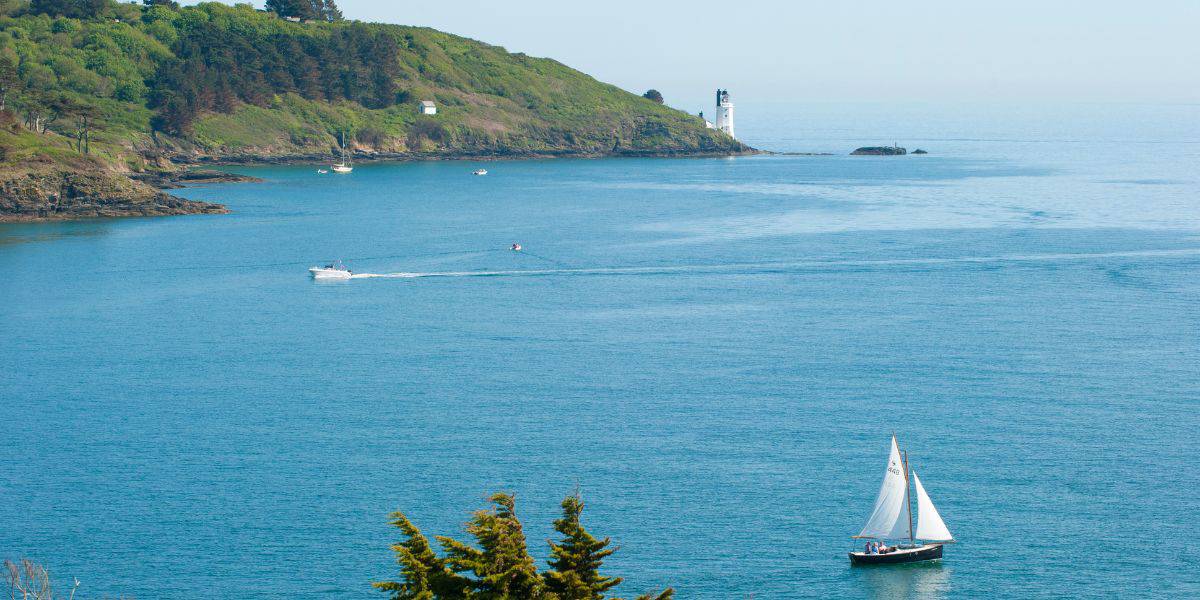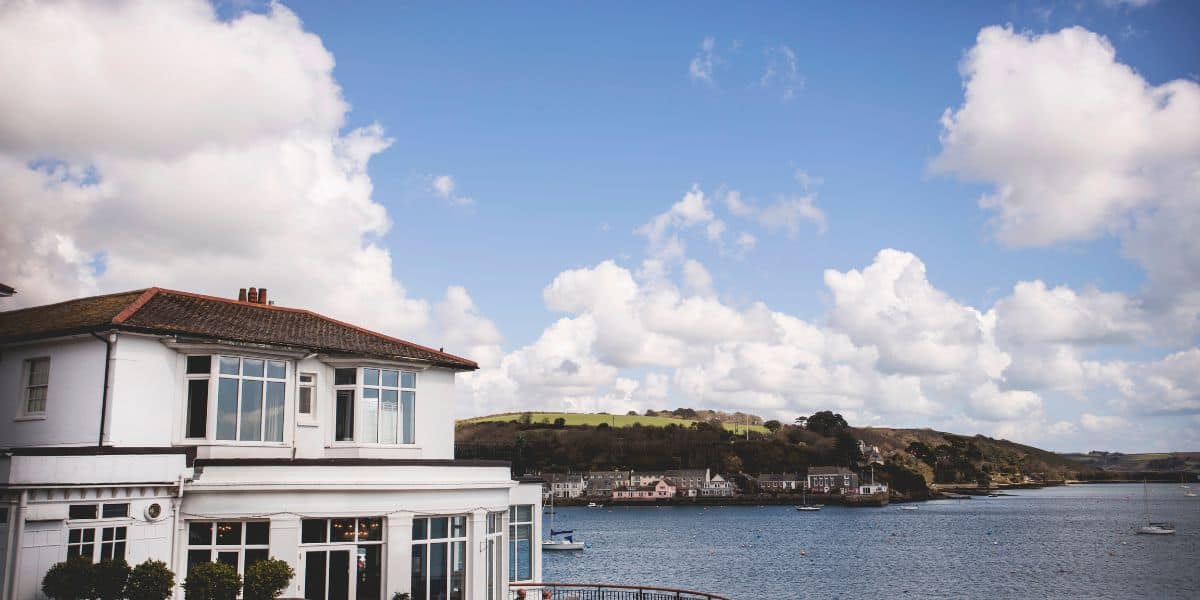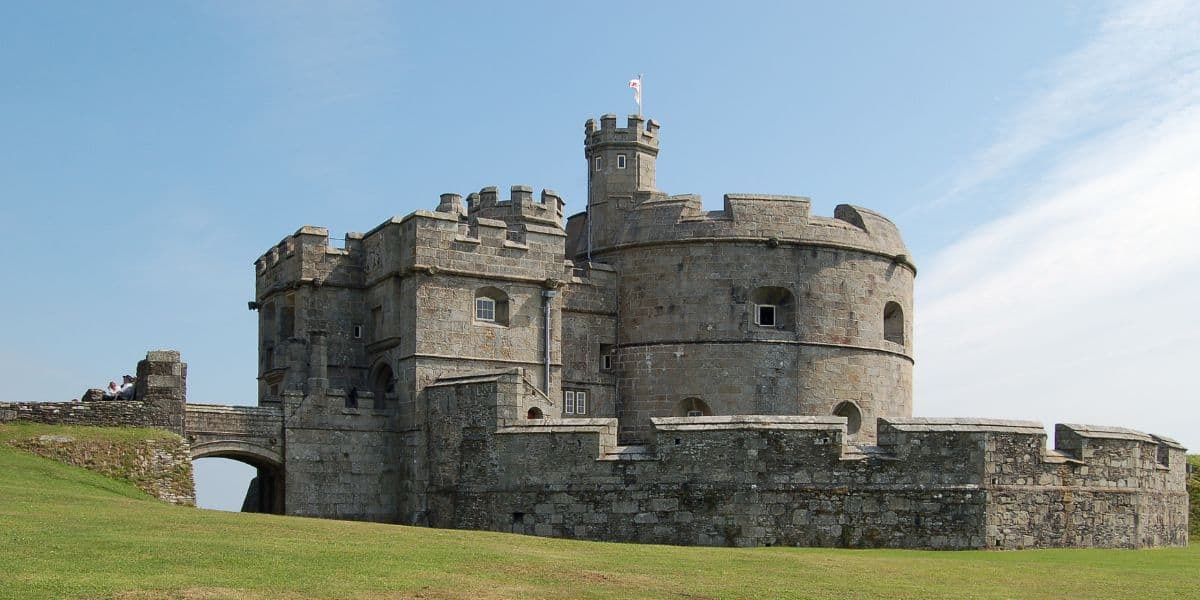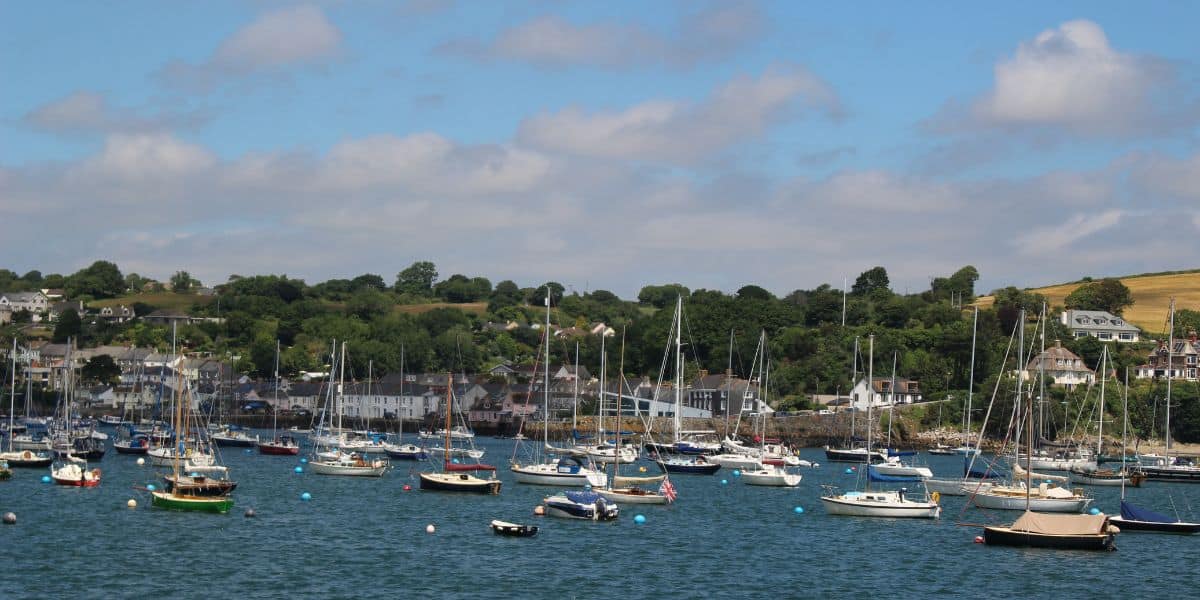Five fascinating facts about the Falmouth coast
This month’s blog is written by Millie Fuller at The Writers Diary…
How much do you know about the Falmouth coastline?
People visit Falmouth, a beautiful and well-liked coastal town, every year to enjoy a seaside holiday. Eating amazing fish and chips on the shore is only one of the things that you can enjoy doing in Falmouth.
Read on to discover some intriguing facts and historical occurrences that even frequent visitors to the area might not be aware of regarding the Falmouth coast. Many of the locations are still standing today and are wonderful for day visits.

1. Sailboats Smashing Records
Ellen MacArthur’s record-breaking effort to go round the globe began and ended in Falmouth. For finishing the solo sail in the shortest amount of time, MacArthur keeps the title. She left on February 7th, 2007, and arrived back at Falmouth Quayside 71 days, 14 hours, 18 minutes, and 33 seconds later to hundreds of people who had come from across the country to welcome her. It’s still recognised as one of British history’s most patriotic athletic events.
2. The Water is Deep
Falmouth’s natural harbour is reputed to be the third deepest in the world and the deepest waters in Western Europe. Its depths can reach 34 metres, compared to Sydney Harbour in Australia’s 45 metres, which is the deepest body of water in the world.
A significant American naval facility was in Falmouth’s harbour during World War II, and it served as the launch pad for many of the ships and sailors who participated in the D-Day landings.
3. The Theft of Gold
Falmouth was the location of a well-known gold dust theft in 1839. When the gold dust, which had sailed from Brazil, arrived at the dock, Lewis Casper and his father tried to steal £47,600 worth of it. When Casper, who worked for a shipping agent company, learned that gold would soon be sent to Falmouth, he painstakingly started organising the robbery.
A bogus messenger was sent to sign for the gold when it arrived as part of the plot, and he was successful in making off with the gold dust. The bunch of crooks were located and taken into custody after the police launched a search after the legitimate messenger arrived at the pier to discover that the gold had vanished. After Casper and his group were found guilty at the Old Bailey in London, he and his father were both sentenced to 15 years in prison and sent to Australia aboard a convict ship.

4. The Source of “Wind in the Willows” Inspiration
The beloved children’s tale has its roots in Falmouth and has been enjoyed by generations. In May 1907, while staying at The Greenbank, the book’s author, Kenneth Grahame, wrote letters to his son that served as its inspiration.
Grahame was known to love Falmouth because he frequently spent holidays there. The sequences in the Wind in the Willows where Mole, Rat, and Toad go on adventures down the river and through the woods are claimed to have been inspired by the Fal Estuary, which The Greenbank overlooks. Visitors can now view a replica of the collection of letters that served as the book’s inspiration at the hotel.

5. There is a Tudor Castle Here
Between 1539 and 1547, when King Henry VIII created a national defence strategy to defend his realm, Pendennis Castle was constructed under his supervision. To be able to defend from all sides, the fortress was built in a circular shape. It was seen as an essential component of England’s defence system because of its location, which was thought to be prime for an invasion via the Falmouth Estuary.
Sir John Killigrew founded a settlement in the vicinity in 1613, not long after the castle was built. This is what is currently recognised as Falmouth, a thriving tourist destination. Visitors are welcome at Pendennis Castle, where they can watch World War II re-enactments or ascend the stairs to the roof for views of the Atlantic ocean.
Britain’s coastline began to emerge around 10,000 years ago and, in essence, it hasn’t changed. To this day, Falmouth’s stunning shoreline makes it ideal for both day-trippers and longer stays.
However, what distinguishes Falmouth’s shoreline from other coasts is its lengthy and colourful history. Discovering more about our past and how it affected our present is just one more reason on a long list of reasons to visit Falmouth.
